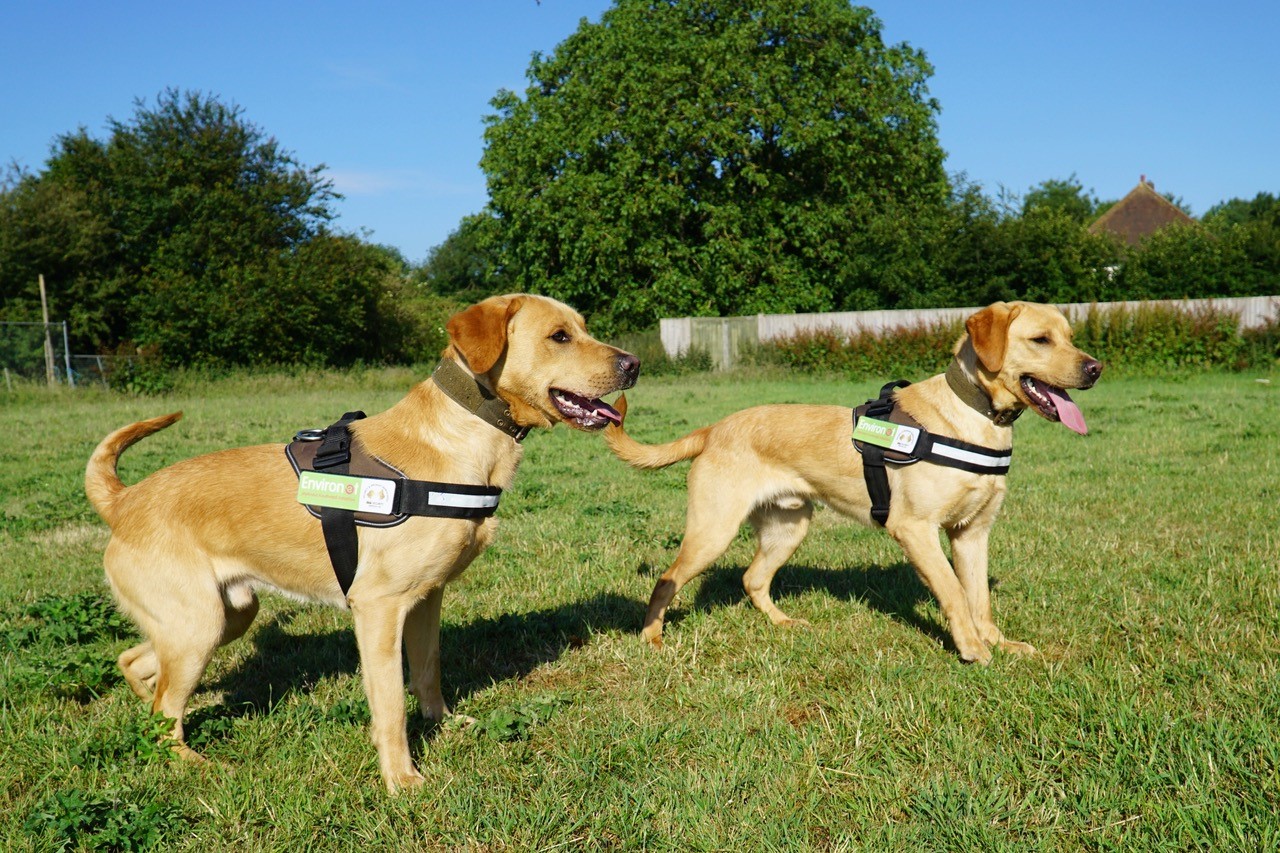
Where knotweed is suspected, therefore, conveyancing lawyers can protect their clients by adding dog detection surveys to the list of searches. Detection dogs Mick and Mack have been trained for Environet UK to detect Japanese knotweed rhizome, even in small quantities hidden beneath the ground. The pair of one-year-old Fox Red Labrador Retrievers can cover a garden or development site in a matter of minutes and will indicate by ‘freezing’, or staying completely still, when Japanese knotweed is detected.
Dog detection is the most precise method available to determine whether knotweed is present and can be carried out at any time of year, including during winter when the plant is dormant beneath the ground. Mick and Mack have been trained by experts RFA Security, who provide security and detection dogs for various purposes including finding explosives, narcotics and even bedbugs.
Nic Seal, founder and managing director of Environet, said: ‘Japanese knotweed is a growing problem for homeowners in the UK and misrepresentation cases are on the rise, where sellers have answered dishonestly about whether their property is affected or deliberately concealed the plant.
‘It’s not uncommon for knotweed to be cut back prior to a survey and I’ve even seen cases where the seller has placed a membrane horizontally in the ground over a knotweed infestation and laid a lawn or pathway over the top. A dog detection survey is the only way to say with high certainty that a property or site is clear of knotweed, offering peace of mind to buyers that there will be no nasty surprises further down the line.’
Knotweed is a major issue for property lawyers and their clients. Sellers are required by law to declare if their property is affected by Japanese knotweed on the Law Society’s TA6 form, completed as a standard part of the conveyancing process. Unless they are absolutely certain that there is no knotweed (including below ground rhizome) on their property or within three metres of the boundary, the guidance recommends that sellers respond “Not known” in order to protect themselves from future legal action if knotweed is subsequently discovered. This places the onus on the buyer to carry out their own checks, which is where the detection dogs can help by surveying the property for any trace of knotweed, including where it has been deliberately concealed.
If left untreated, Knotweed can grow at a rate of 10cm per day and causes extensive damage to property, breaking through cracks in mortar, brickwork, joints in concrete, drains, sewers, driveways and even the cavity walls of homes.
Dog detection surveys will also be useful to sellers of property in locations badly affected by knotweed, who may wish to reassure potential buyers from the outset that the plant is not present. Environet’s live Japanese knotweed heatmap, at https://environetuk.com/exposed-japanese-knotweed-heat-map, allows people to enter a postcode to discover the number of infestations within a 4km radius, with the worst affected areas highlighted in yellow or red.
For more information, visit: www.environetuk.com.









